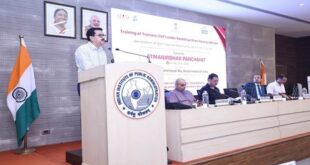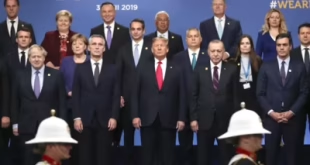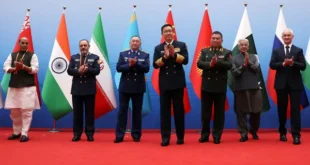- Recently, the Supreme Court (SC) dismissed a writ petition challenging provisions of the Special Marriage Act (SMA), 1954 requiring couples to give a notice declaring their intent to marry 30 days before their marriage.
- The SC Rejected the petition on the grounds that the petitioner was no longer an aggrieved party as she had already solemnised her marriage under SMA.
Petition Seek
- The petition challenged the Constitutional validity of certain provisions of the SMA, calling it violative of the right to privacy guaranteed under Article 21 of the Constitution.
- It is because these provisions require couples to give notice 30 days before the date of marriage inviting objections from the public.
- These provisions contravene Article 14 on right to equality as well as Article 15 on prohibition of discrimination on grounds of religion, race, caste and sex as these requirements are absent in personal laws..
- Section 5 of the SMA requires couples getting married under it to give a notice to the Marriage Officer 30 days before the date of marriage.
- The Petition seeks striking down of provisions that follow in Section 6 to Section 10.
- Section 6 requires such a notice to be then entered into the Marriage Notice Book maintained by the Marriage Officer, which can be inspected by “any person desirous of inspecting the same.
- Section 7 provides the process for making an objection.
- Section 8 specifies the inquiry procedure to be followed after an objection has been submitted.
- The petition contends that these provisions make the personal information of the individuals open to public scrutiny.
- Hence, these provisions seriously damage one’s right to have control over her/his personal information and its accessibility.
- By making the personal details of the couple accessible to everyone, the very right of the couple to be the decision makers of their marriage is being hampered by the state.
- These public notices have been used by anti-social elements to harass couples getting married.
- There have been instances where marriage officers have gone over and beyond the law and sent such notices to the parents of the couple leading to the girl being confined to her house by her parents.
Special Marriage Act (SMA), 1954
- Marriages in India can be registered under the respective personal laws Hindu Marriage Act, 1955, Muslim Marriage Act, 1954, or under the Special Marriage Act, 1954.
- It is the duty of the Judiciary to ensure that the rights of both the husband and wife are protected.
- The Special Marriage Act, 1954 is an Act of the Parliament of India with provision for civil marriage for people of India and all Indian nationals in foreign countries, irrespective of religion or faith followed by either party.
- When a person solemnises marriage under this law, then the marriage is not governed by personal laws but by the Special Marriage Act.
SOURCE: THE HINDU,THE ECONOMIC TIMES,MINT
 Chinmaya IAS Academy – Current Affairs Chinmaya IAS Academy – Current Affairs
Chinmaya IAS Academy – Current Affairs Chinmaya IAS Academy – Current Affairs



